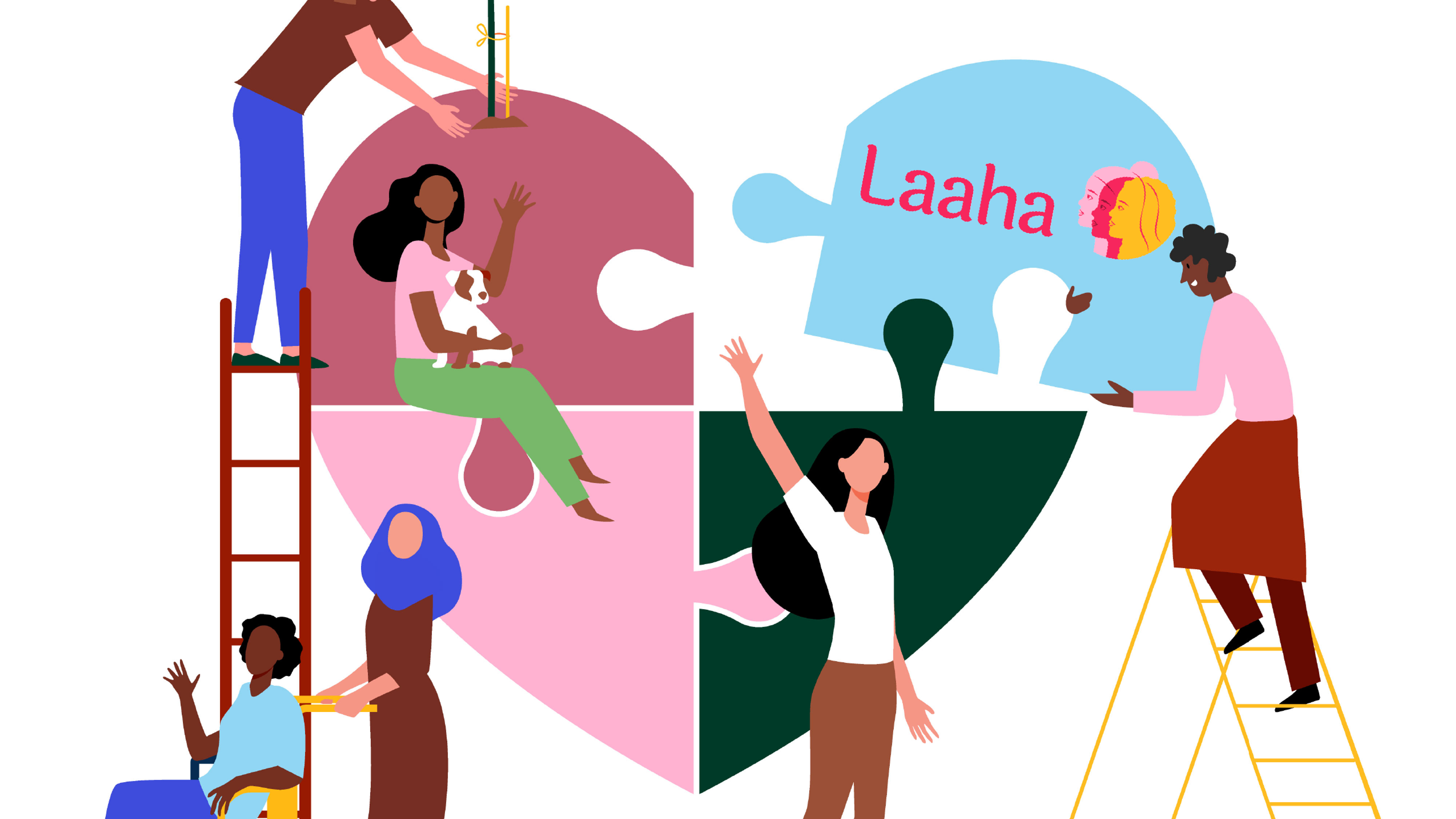Laaha - A digital safe space for women and girls
 © Maren Wickwire
© Maren WickwireWhat is the challenge?
One in three women experience violence in their lifetime and 12 million girls are married before they reach the age of 18. Violence that is exponentially made worse during humanitarian crises. COVID-19 only exacerbated these challenges due to increased risks of violence linked to lockdowns and isolation measures. In addition, Gender-Based Violence (GBV) has been compounded online with girls and women more likely to be targets of toxic, and harmful, online attacks which include threats of violence and rape, cyberstalking, non-consensual sharing of intimate photos, sexual harassment, cyberbullying, sex trolling, images and videos of sexual exploitation and abuse, as well as data security and privacy breaches . A survey, including 14,000 girls in 31 countries, found more than half (58%) had been harassed and abused online . The digital gender gap has barely improved since 2011, dropping just half a percentage point from 30.9% to 30.4%. More than 50% of women globally are offline . At the same time, the surge in internet usage during the COVID-19 pandemic is an opportunity to use digital tools to ensure access to information and services by women and girls. The development of safe and ethical technology to address GBV requires leadership by and collaboration with them. Safe spaces are a key approach to working with women and girls, providing them with access to information, links to services - including GBV response and prevention services, skill-building, peer connection, and support- in humanitarian crises. Yet, they often face barriers to accessing these physical safe spaces because of distance, security concerns, harmful gender norms, and domestic responsibilities. In humanitarian contexts characterized by insecurity, dynamic conflict, and further movement restrictions, women and girls face even greater barriers to accessing physical safe spaces.
What is innovative about the project?
Laaha’s digital approach in creating a virtual safe space for adolescent girls and women when physical safe spaces are less accessible is unprecedented in scale. It’s the first ever digital solution targeting women and girls in humanitarian settings whose innovative approach and benefits include:
1. User-Centered Design: Co-created with women and girls from Afghanistan to Ukraine and Iraq, ensuring relevance and effectiveness.
2. Comprehensive Resources: Covers over 80 modules ranging from topics on health to legal rights, providing a one-stop information hub and essential referral to physical life-saving services.
3. Interactive Chatbot: Simplifies the search for information, enhancing user experience and accessibility.
4. Moderated Forums: Offers peer support in a safe environment, overseen by gender-based violence specialists.
5. Scalability: UNICEF plans to expand the platform, demonstrating adaptability to different users and crises.
What are the expected outcomes?
Laaha plans to broaden its reach by offering content in 15 languages, aiming to connect with over one million users by 2025. An upcoming impact evaluation, in collaboration with Washington University, will inform enhancements to the platform by analysing user data and feedback. This will ensure Laaha remains a pertinent and effective tool for women and girls in humanitarian settings.
Expected outcomes include:
• Enhanced Awareness: Users will gain valuable insights into health, safety, and their rights
• Greater sense of safety: Information on the platform will guide users through potentially abusive situations towards safety.
• Community Building: Laaha will foster a supportive online community, helping to alleviate feelings of isolation
• Increased Wellbeing: By providing consistent access to information and community support, Laaha will contribute to the mental and emotional health of its users, even amidst disruptions in their physical world.
In essence, Laaha is expected to be a transformative resource, driving knowledge, safety, and community support, thereby boosting the empowerment and wellbeing of women and girls globally.
Who are the project partners?
This project is led by UNICEF, who will collaborate with corporate partners like GSMA and Meedan as well as local GBV service providers and grassroots organizations across Afghanistan, Ecuador, Iraq, Lebanon, Ukraine, and Venezuela.
You can visit Laaha at www.laaha.org. Watch the video and subscribe to the YouTube channel to check out the latest videos and podcasts.